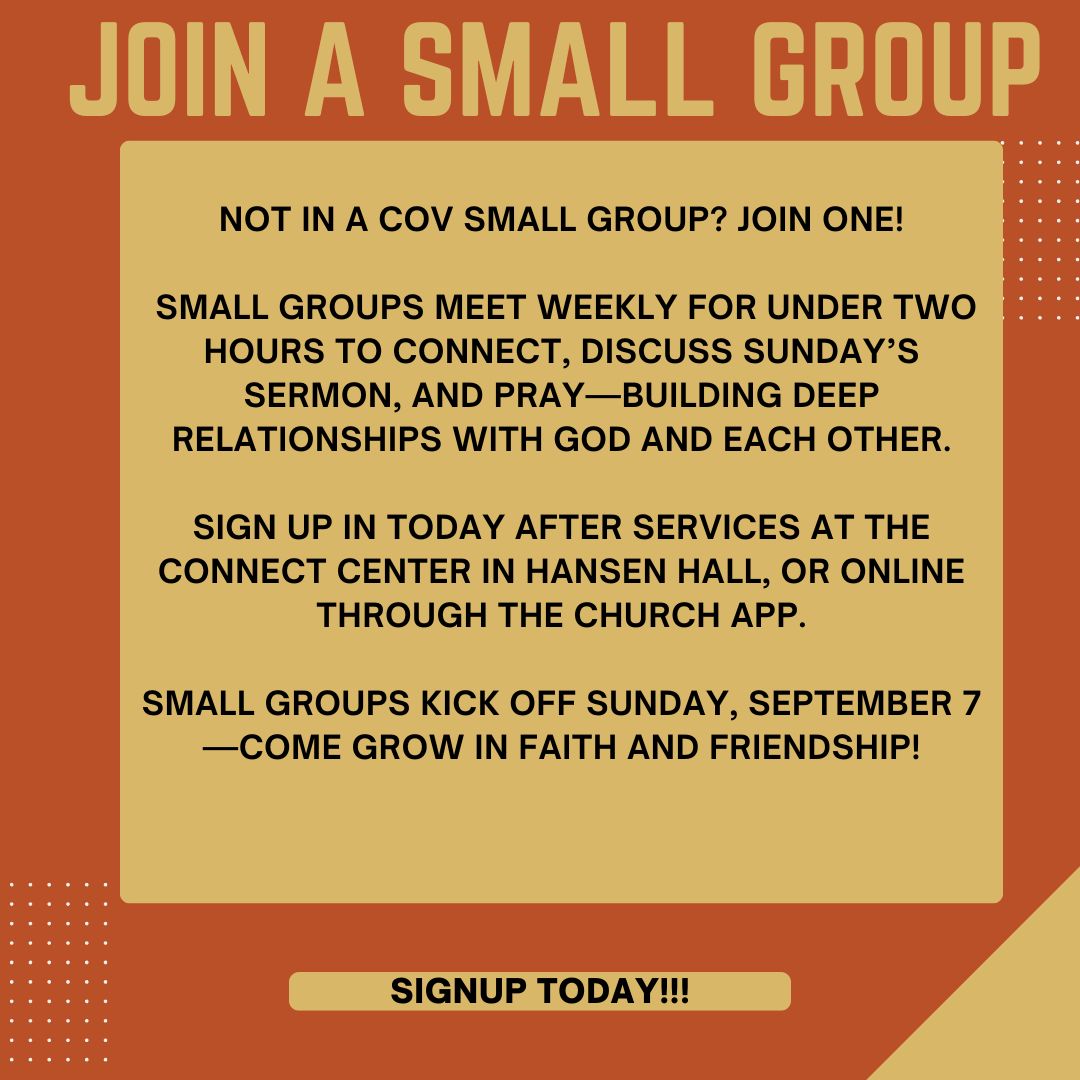Small Groups are a vital step in nurturing spiritual growth, fostering community, and living out our faith in God. As we commit to gathering together, we embrace the opportunity to learn, grow, and support one another in our journeys of faith. Together, we can cultivate a vibrant church community that reflects the love and truth of Jesus Christ. Join us as we explore the richness of scripture and the depth of fellowship in our Small Groups!
Bible Studies
Meets weekly on Sundays from 10:15-11:30am in Room #3
“Iron sharpens iron; so a man sharpens the countenance of his friend.” Proverbs 27: 17
Come join us as we fellowship and study God’s word together.
“All scripture is God breathed and is useful for teaching, rebuking, correcting and training in righteousness, so that the man of God may be thoroughly equipped for every good work.” 2 Timothy 3: 16-17
For more information about our Tuesday Men’s Bible Study, you can call contact Chris at facilities@churchofthevalley.net.
Precept Bible Study is a method that teaches individuals to observe, interpret, and apply God’s Word for their lives. No matter where you are in faith, you shouldn’t be alone. Our Precept discussion group is a place to study God’s Word with others as you grow closer to Him and each other.
We study specific books of the Bible throughout the year which include weekly homework. For more information about our Precept Bible Study, you can email us at office@churchofthevalley.net.
Meets weekly on Mondays from 9am-12pm in Room #3
The Deborah Circle is a ladies Bible study that meets once a month in the evening. We study various kinds of books of the Bible and topical subjects which point to the gospel of Jesus Christ.
Meets monthly on the second Tuesday from 6-7:30pm in Room #3

